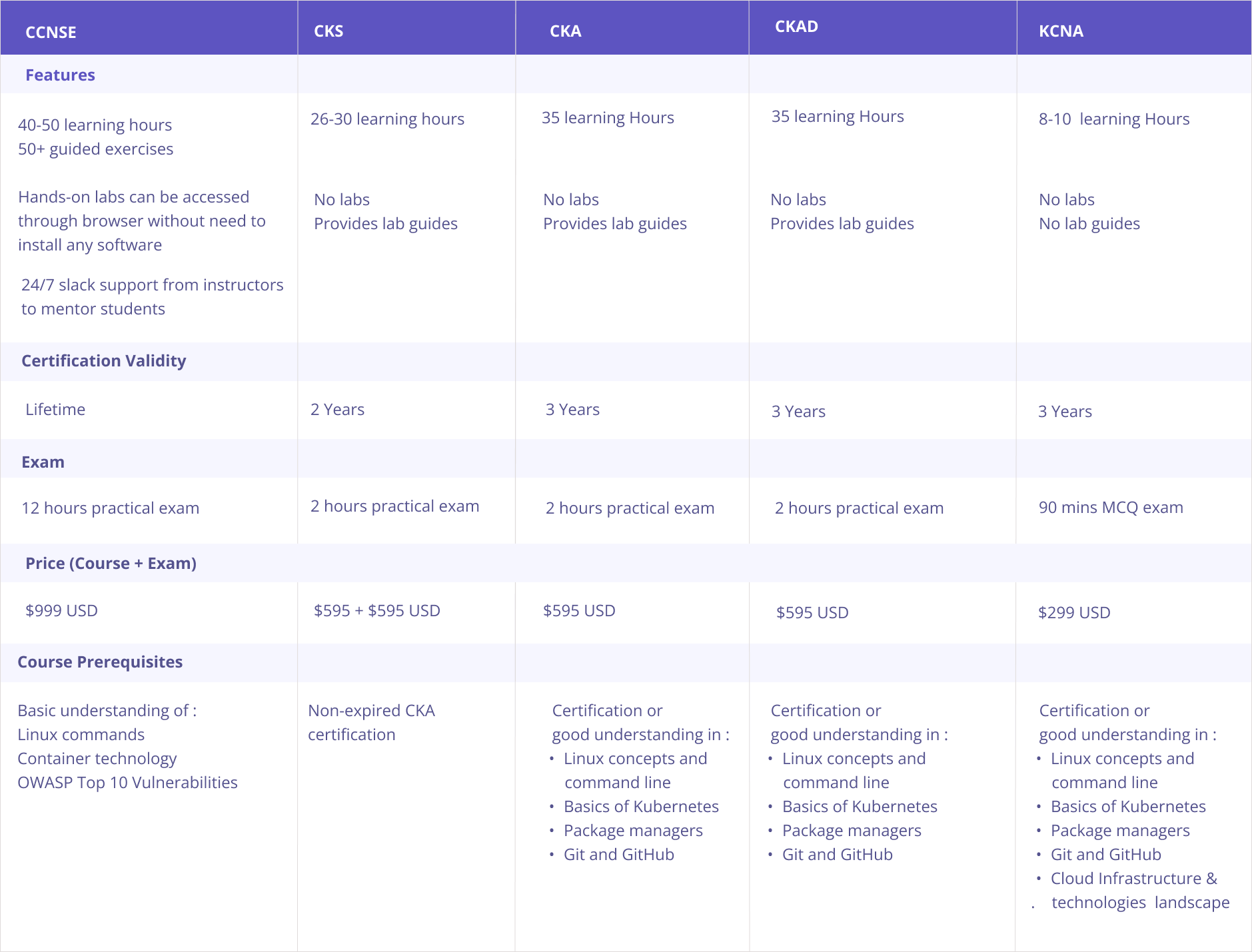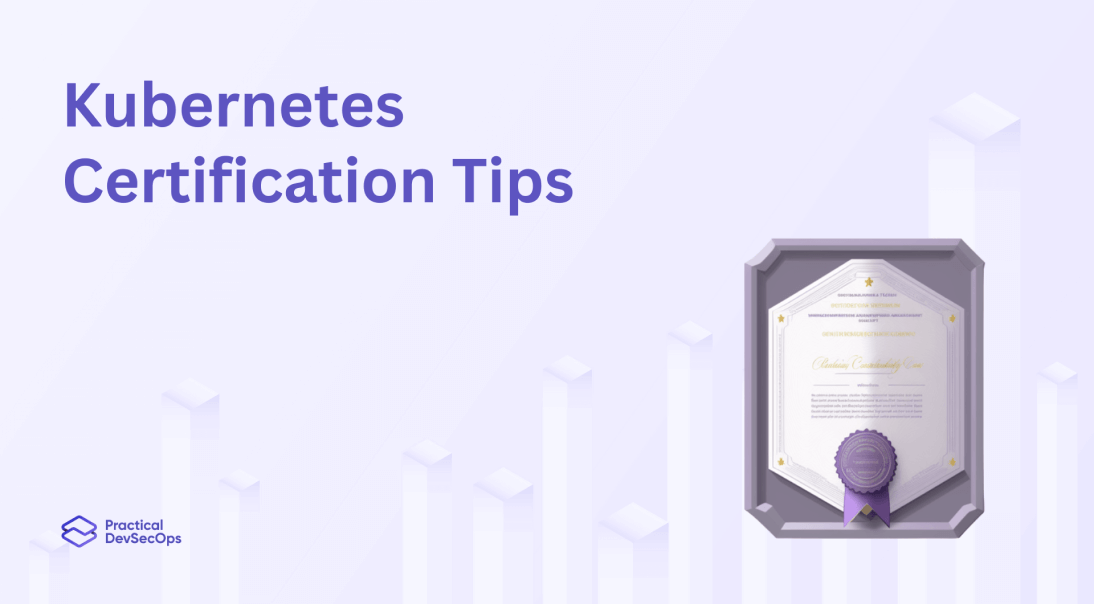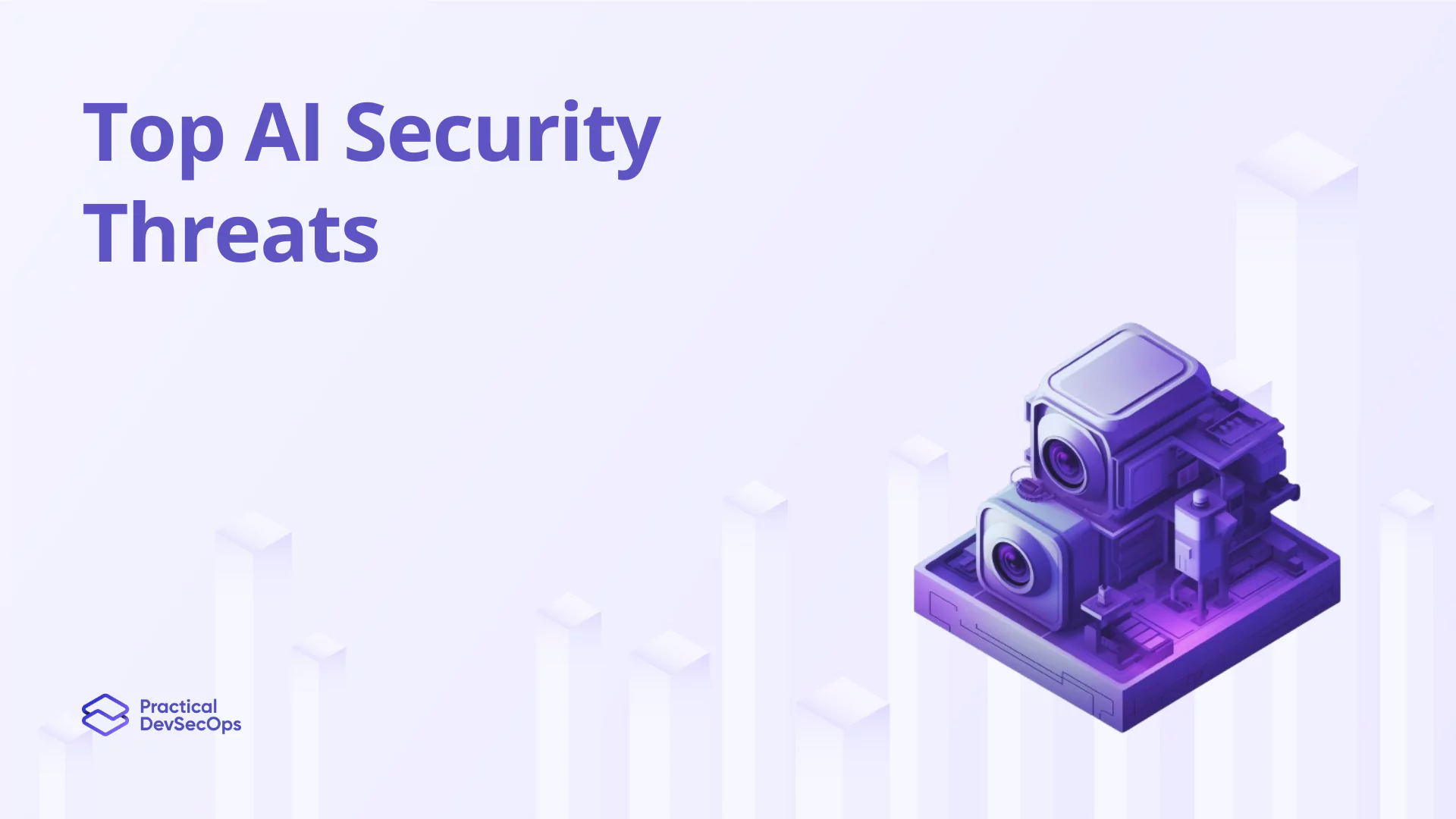Kubernetes is a popular container orchestration tool that is becoming increasingly important in the cloud-native computing environment. As a result, Kubernetes certification has become essential for those who want to advance their career in DevOps, cloud engineering, or system administration. In this article, we will provide some valuable tips for achieving success in Kubernetes certifications,
5 Best Kubernetes Certification Tips for 2024
Here are five helpful Kubernetes certification tips to help you successfully pass the challenges you face in upskilling in Kubernetes.
Tip 1: Choose the Right Kubernetes Certification
One of the first steps to take when preparing for a Kubernetes certification is choosing the right one. Several Kubernetes certifications are popular and highly sought after by employers, such as CCNSE, CKA, CKS, KCNA, and CKAD.

Also read, Best Kubernetes Certification Courses
Tip 2: Prepare Thoroughly
As with any certification examination, preparation is vital to achieving success in Kubernetes certifications. Some steps that you can take to prepare thoroughly include:
- Reading up on Kubernetes: Start with a good book. Read Kubernetes books that will guide you through practical, real-world examples and give you an understanding of the core Kubernetes concepts and terminologies.
- Join a Kubernetes Course: Obtain hands-on training and learn best practices by enrolling in a Kubernetes course. Enrol for a course that can help you gain the knowledge and skills to succeed in Kubernetes security.
- Take Practice Exams: To test your knowledge against the exam pattern, take free practice exams and questions online.
Tip 3: Gain Hands-on Experience
Getting hands-on experience with Kubernetes is essential for succeeding in cloud-native security roles. You can obtain hands-on experience by:
- Setting up a Kubernetes Environment: Set up a Kubernetes environment on your local machine. You can also explore playgrounds like Katacoda or leverage a cloud-based lab environment.
(But if you enroll for the CCNSE course to learn Kubernetes security, there is no need to set up a lab. It provides browser-based labs with no system prerequisites)
- Doing Practical Exercises: Engage in the practical exercises provided in the course material.
Tip 5: Stay Up-To-Date
Kubernetes’ best practices constantly evolve; thus, staying up to date with the latest recommendations is essential. Keeping up with best practices will help you pass exams, prepare you for on-the-job scenarios and keep your credentials up to date.
Also read, Is DevSecOps a Promising Career Option?
Frequently Asked Question – Certified Kubernetes Administrator CKA Exam Tips
- Prior experience with Kubernetes isn’t necessary to pass the CKA exam. However, since the CKA exam is practical, you can gain experience by practicing on your own local Kubernetes cluster, which can be easily set up.
- Focus on understanding concepts instead of memorizing details. The official documentation website of Kubernetes is accessible during the exam.
- Familiarize yourself with useful commands like kubectl create deploy to create entirely configured Deployments. kubectl create is useful for creating new Secrets, and kubectl explain provides ways to see the specification of any Kubernetes resource. Learn to list and modify resources and how to filter and format data. Invest time in practicing different kubectl commands.
- Save time during the exam by reusing template YAML files and optimizing the copy-paste process from the official documentation website.
- Basic knowledge of Linux, including tools like systemd, journald, find, grep, and curl, is essential for the CKA exam.
- Learning Vim can save time during the exam by allowing you to create and change files without leaving the Terminal window, which reduces the risk of mistakes and gives you more time to think about the task and consult the documentation.
Also read, How to Pass CKS Kubernetes Exam?
Also read, CKA vs CKAD: Which is Better?
Conclusion:
In conclusion, obtaining a Kubernetes certification is essential for IT professionals looking to stand out in a competitive job market. In addition, Kubernetes knowledge is becoming increasingly relevant as more companies adopt cloud-native strategies. Choosing the right certification, preparing thoroughly by taking a course, reading up, and taking practice exams are the best Kubernetes certification tips you can follow. Furthermore, gain hands-on experience and keep up-to-date with the latest practices.






0 Comments